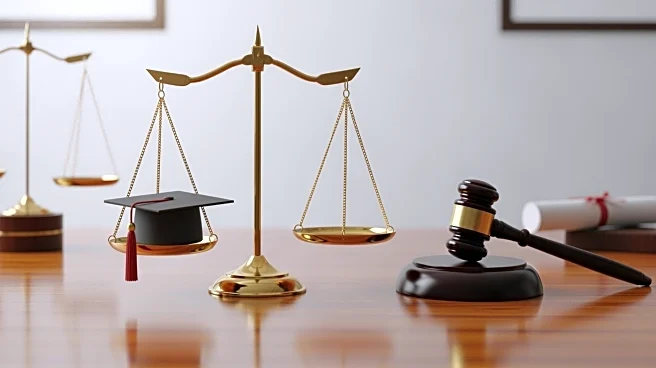What's Happening?
The Trump administration has announced significant changes to the Public Service Loan Forgiveness (PSLF) program, which could lead to a legal battle. The Education Department finalized new rules on October 30, aiming to restrict the types of employers
whose workers can qualify for student debt forgiveness. The PSLF program, initially designed to cancel student debt for individuals in public service careers after ten years of payments, was reformed under President Joe Biden, forgiving billions in debt for over a million Americans. The new regulations, set to take effect on July 1, 2026, will exclude organizations engaged in activities deemed illegal, such as supporting undocumented immigrants or providing gender-affirming care for minors. The changes have sparked criticism from advocates who argue the rules are illegal and politically motivated.
Why It's Important?
The changes to the PSLF program could have significant implications for public service workers, including nurses, teachers, and firefighters, who rely on the program for debt relief. By narrowing the eligibility criteria, the Trump administration's move may limit access to debt forgiveness for many individuals, potentially affecting their financial stability and career choices. The decision has drawn criticism from advocates who argue it punishes public servants based on their employers' perceived political views. The anticipated legal challenges could further complicate the implementation of these changes, impacting the future of student debt relief in the U.S.
What's Next?
The new regulations are not scheduled to take effect until July 1, 2026, providing time for potential legal challenges. Advocates for student loan borrowers have already announced plans to file a lawsuit, arguing that the changes represent an illegal overreach. The outcome of these legal proceedings could determine the future of the PSLF program and its accessibility to public service workers. Additionally, the Education Department has established an appeals process for employers to challenge determinations of illegal activity, which could lead to further disputes and negotiations.


















